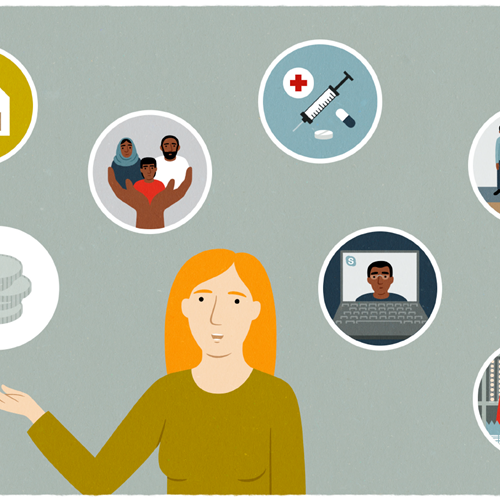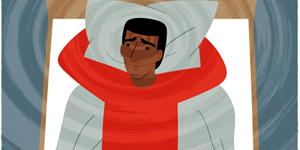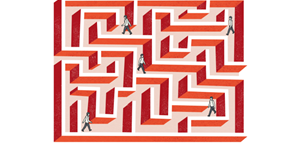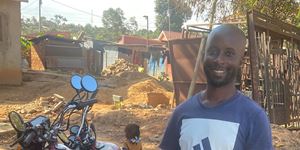
DRC's work on reintegration support
DRC offers counselling on the possibility of applying for reintegration support. The reintegration support is provided in through local reintegration partners in the relevant country of origin.

Questions and answers on reintegration support
Reintegration support is an offer for rejected asylum seekers.
It is the Danish Return Agency that assesses whether an applicant is cooperating regarding his or her return journey and it is the Danish Return Agency that decides whether an applicant meets the conditions to qualify for reintegration support. Applicants who wish to be covered by a reintegration program must not have an ongoing application case for a residence permit with the authorities.
This means that an asylum seeker who has been definitively refused asylum and who wishes to travel voluntarily to his or her home country will, as a rule, be included in the target group for reintegration support.
Persons who have a residence permit revoked under sections 7-8 of the Aliens Act or do not have it extended will, as a rule, also be included in the target group.
Furthermore, asylum seekers who are in phase 2, where the asylum case has been taken into consideration in Denmark, can withdraw their application for asylum, and be covered by the scheme.
It is a requirement that the person in question has not been convicted of a serious crime. The nature of the crime is taken into account when deciding on the granting of reintegration support so that more serious crimes such as crimes against national security, terrorism, and violent crimes against persons can exclude a person from receiving support.
Reintegration support is "in kind" support of up to DKK 20,000 (per person). No cash amount will be paid, apart from the amount an applicant can apply for to cover minor expenses in connection with the return journey, such as transport from an airport to a final destination.
"In kind" support means that the support is provided by the local reintegration partner in the country in question (click here to see a list of countries with reintegration partners) and that no actual cash is received.
The reintegration support is adapted to the individual needs of the applicant and can be used, among other things, to fund reception at the airport, short-term temporary accommodation, help to find employment, income generating activities, medicine, etc. The local reintegration partner monitors the returnee for 12 months after departure from Denmark.
The Somalia program offers both "in kind" support as well as a small cash amount up to a total amount of approximately DKK 30,000
If there is no local reintegration partner in the home country, the Return Agency can offer DKK 20,000 in cash support upon departure. Read more here.
The reintegration support is funded by the Danish authorities, but it is local reintegration partners in the home country who take on the concrete task of supporting the returned person.
The reintegration support is managed in cooperation with DRC's local reintegration partners in the country of return or through local reintegration partners who work with the EURP (Frontex). It is the Return Agency that decides whether the reintegration support should be provided through DRC or EURP.
The Danish Return Agency processes applications for reintegration support.
DRC's return and reintegration counsellors can help fill in the application form for reintegration support and send it to the Danish Return Agency.
Our counsellors can also help in ascertaining whether or not an applicant meets the criteria to receive reintegration support. They can also advise on local conditions in the specific home country, possible uses of reintegration support, put an applicant in virtual contact with the local reintegration partner before departure and also assist throughout the return process for the individual applicant.
The short answer is YES.
The following persons are excluded from reintegration support, even if they cooperate about returning home:
- Persons who have received repatriation support under the Repatriation Act
- Persons who have previously left Denmark via a reception- and reintegration program to promote voluntary departure to their home country, and have subsequently re-entered Denmark as an asylum seeker
- Persons who are treated according to the manifestly unfounded urgent procedure.
- Persons who have been excluded from obtaining a residence permit according to § 10 of the Aliens Act (persons on tolerated stay)
- Persons against whom there is a justified suspicion that entry has only taken place with a view to obtaining support
- Persons who have not been registered as asylum seekers in Denmark, but who have been rejected, transferred or returned to another country according to the rules in Chapter 5a of the Aliens Act (the Dublin Regulation)
- Persons who are citizens of countries from which you do not need a visa to enter Denmark


Sustainable reintegration requires holistic support

Voices of returnees
